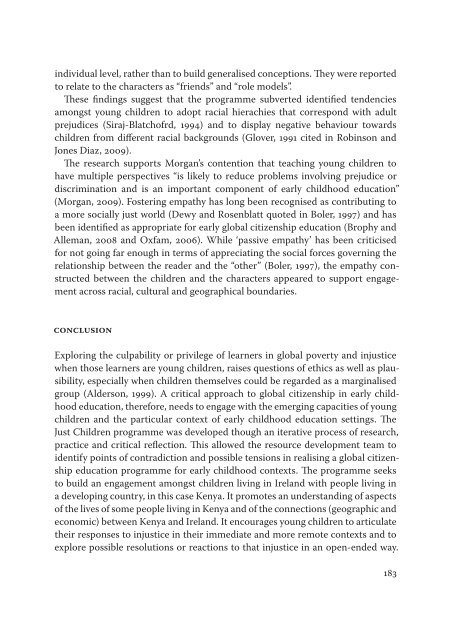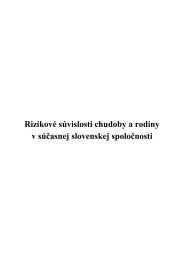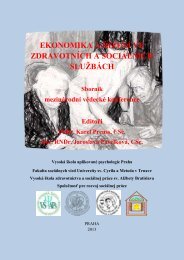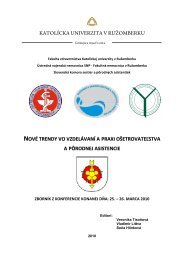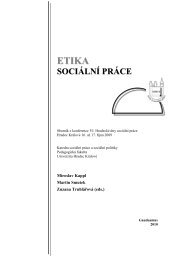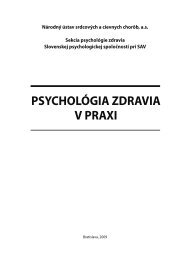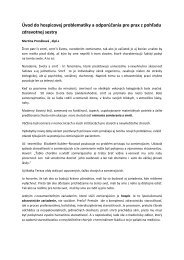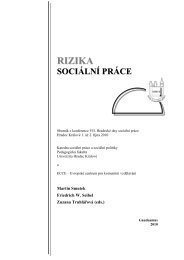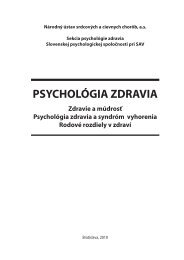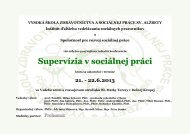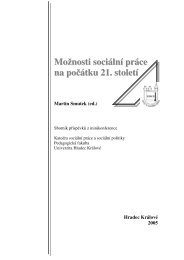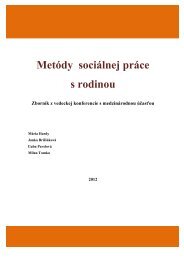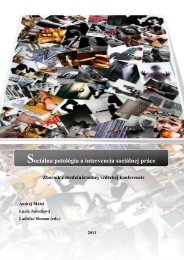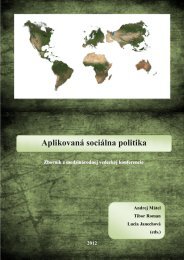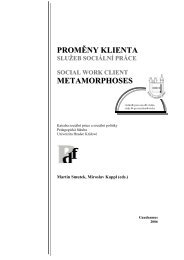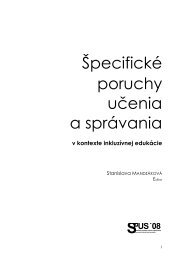Zmena klÃmy â možný dopad (nielen) na obyvateľstvo - Prohuman
Zmena klÃmy â možný dopad (nielen) na obyvateľstvo - Prohuman
Zmena klÃmy â možný dopad (nielen) na obyvateľstvo - Prohuman
You also want an ePaper? Increase the reach of your titles
YUMPU automatically turns print PDFs into web optimized ePapers that Google loves.
individual level, rather than to build generalised conceptions. They were reported<br />
to relate to the characters as “friends” and “role models”.<br />
These findings suggest that the programme subverted identified tendencies<br />
amongst young children to adopt racial hierachies that correspond with adult<br />
prejudices (Siraj-Blatchofrd, 1994) and to display negative behaviour towards<br />
children from different racial backgrounds (Glover, 1991 cited in Robinson and<br />
Jones Diaz, 2009).<br />
The research supports Morgan’s contention that teaching young children to<br />
have multiple perspectives “is likely to reduce problems involving prejudice or<br />
discrimi<strong>na</strong>tion and is an important component of early childhood education”<br />
(Morgan, 2009). Fostering empathy has long been recognised as contributing to<br />
a more socially just world (Dewy and Rosenblatt quoted in Boler, 1997) and has<br />
been identified as appropriate for early global citizenship education (Brophy and<br />
Alleman, 2008 and Oxfam, 2006). While ‘passive empathy’ has been criticised<br />
for not going far enough in terms of appreciating the social forces governing the<br />
relationship between the reader and the “other” (Boler, 1997), the empathy constructed<br />
between the children and the characters appeared to support engagement<br />
across racial, cultural and geographical boundaries.<br />
CONCLUSION<br />
Exploring the culpability or privilege of learners in global poverty and injustice<br />
when those learners are young children, raises questions of ethics as well as plausibility,<br />
especially when children themselves could be regarded as a margi<strong>na</strong>lised<br />
group (Alderson, 1999). A critical approach to global citizenship in early childhood<br />
education, therefore, needs to engage with the emerging capacities of young<br />
children and the particular context of early childhood education settings. The<br />
Just Children programme was developed though an iterative process of research,<br />
practice and critical reflection. This allowed the resource development team to<br />
identify points of contradiction and possible tensions in realising a global citizenship<br />
education programme for early childhood contexts. The programme seeks<br />
to build an engagement amongst children living in Ireland with people living in<br />
a developing country, in this case Kenya. It promotes an understanding of aspects<br />
of the lives of some people living in Kenya and of the connections (geographic and<br />
economic) between Kenya and Ireland. It encourages young children to articulate<br />
their responses to injustice in their immediate and more remote contexts and to<br />
explore possible resolutions or reactions to that injustice in an open-ended way.<br />
183


